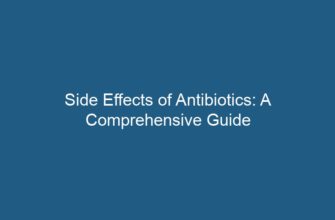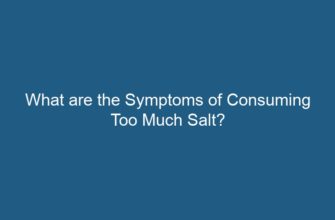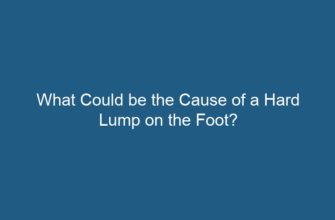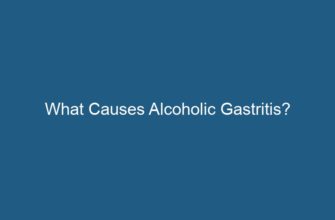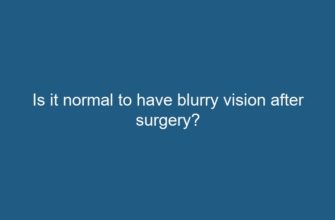Have you ever experienced a sudden loss or alteration in your sense of taste? It can be a frustrating and concerning experience. Our sense of taste plays a significant role in our daily lives, guiding our food preferences and enhancing our overall enjoyment of eating. In this article, we will explore the various reasons why someone may lose their sense of taste and discuss possible solutions.
- 1. Common Causes of Taste Loss
- 1.1 Viral Infections
- 1.2 Medications
- 1.3 Dental Problems
- 1.4 Smoking
- 1.5 Aging
- 2. Less Common Causes of Taste Loss
- 2.1 Head Injuries
- 2.2 Sinus or Nasal Problems
- 2.3 Nutritional Deficiencies
- 2.4 Neurological Disorders
- 2.5 Psychological Factors
- 3. Treatment and Management
- 3.1 Addressing Underlying Medical Conditions
- 3.2 Medication Adjustment
- 3.3 Dental Care
- 3.4 Lifestyle Changes
- 3.5 Dietary Modifications
- 3.6 Nutritional Supplements
- 3.7 Psychological Support
- 4. Conclusion
1. Common Causes of Taste Loss
There are several common causes that can lead to a loss of taste:
1.1 Viral Infections
Viral infections, such as the common cold or flu, can temporarily affect our sense of taste. This is because these infections can cause inflammation or damage to the taste buds or olfactory receptors in the nose, which are necessary for detecting flavors.
1.2 Medications
Certain medications, such as antibiotics, antihistamines, and chemotherapy drugs, can interfere with our ability to taste. These medications can affect the taste buds or alter the chemical balance in our mouths, resulting in a diminished sense of taste.
1.3 Dental Problems
Dental issues, such as gum disease, tooth infections, or oral surgeries, can impact our sense of taste. Inflammation or nerve damage in the mouth can disrupt our ability to detect and perceive flavors correctly.
1.4 Smoking
Smoking can significantly impair our sense of taste. The chemicals in cigarettes can damage the taste buds and affect the functioning of the olfactory receptors, leading to a diminished ability to taste flavors fully.
1.5 Aging
As we age, our sense of taste naturally declines. The number of taste buds we have decreases, and the remaining ones may become less sensitive. This age-related taste loss is often gradual and can impact our ability to fully enjoy food.
2. Less Common Causes of Taste Loss
In addition to the common causes mentioned above, taste loss can also be triggered by less common factors:
2.1 Head Injuries
Head injuries, particularly those affecting the brain or the nerves responsible for taste, can result in a loss of taste. Trauma to these areas can disrupt the proper functioning of the taste buds and olfactory receptors.
2.2 Sinus or Nasal Problems
Conditions like sinusitis or nasal polyps can interfere with our sense of taste. These conditions can cause blockages in the nasal passages, preventing the aroma of food from reaching the olfactory receptors and affecting our perception of taste.
2.3 Nutritional Deficiencies
Certain nutrient deficiencies, such as zinc, vitamin B12, or folate, can influence our sense of taste. These nutrients are essential for maintaining the health and functioning of the taste buds, and their deficiency can lead to taste abnormalities.
2.4 Neurological Disorders
Neurological disorders, such as Parkinson’s disease, multiple sclerosis, or Alzheimer’s disease, can affect the sense of taste. These conditions can disrupt the communication between the taste buds, olfactory receptors, and the brain, leading to taste alterations or loss.
2.5 Psychological Factors
Psychological factors, including stress, depression, or anxiety, can impact our sense of taste. These emotional states can alter our perception of flavors, making food taste different or less enjoyable.
3. Treatment and Management
The treatment and management of taste loss largely depend on the underlying cause. Here are some possible approaches:
3.1 Addressing Underlying Medical Conditions
If a medical condition is responsible for the taste loss, treating the underlying condition can help restore the sense of taste. This may involve medication, surgery, or other interventions, depending on the specific condition.
3.2 Medication Adjustment
If medications are causing taste alterations, consulting with a healthcare professional to adjust the dosage or switch to alternative medications may be beneficial.
3.3 Dental Care
Seeking dental treatment for any underlying oral issues can help improve taste loss associated with dental problems. This may involve addressing gum disease, tooth decay, or other dental conditions.
3.4 Lifestyle Changes
Adopting healthier lifestyle habits, such as quitting smoking or reducing alcohol consumption, can have a positive impact on the sense of taste.
3.5 Dietary Modifications
Some individuals may benefit from modifying their diets to enhance their sense of taste. Including more flavorful foods, experimenting with different spices and seasonings, or consulting with a dietitian can help improve taste perception.
3.6 Nutritional Supplements
In cases where nutritional deficiencies contribute to taste loss, supplementation with the deficient nutrients, under the guidance of a healthcare professional, may be recommended.
3.7 Psychological Support
For taste loss related to psychological factors, seeking support from a mental health professional can be helpful. Addressing underlying emotional concerns and learning coping strategies may improve taste perception.
4. Conclusion
Experiencing a loss of taste can be distressing, but it is essential to remember that there are various potential causes and solutions. Identifying the underlying reason for taste loss and seeking appropriate treatment or management strategies can help restore or improve the sense of taste. Consultation with healthcare professionals is recommended to determine the best course of action for each individual case.



